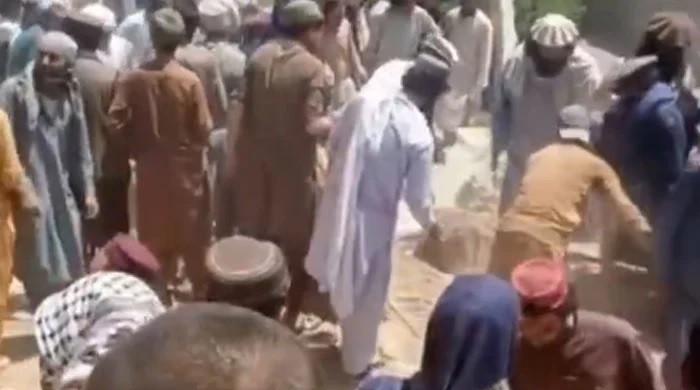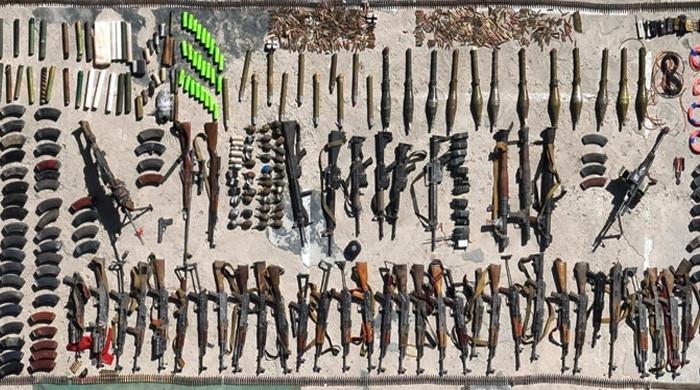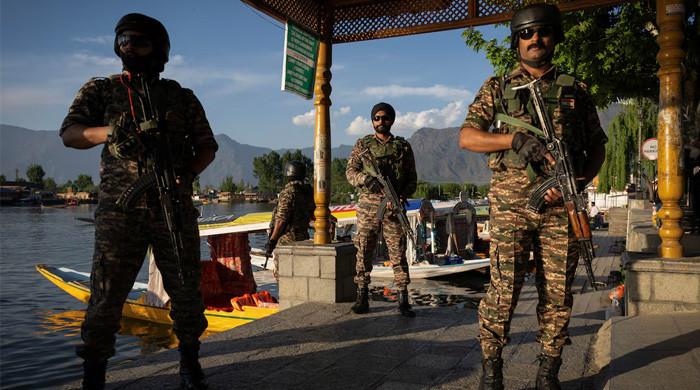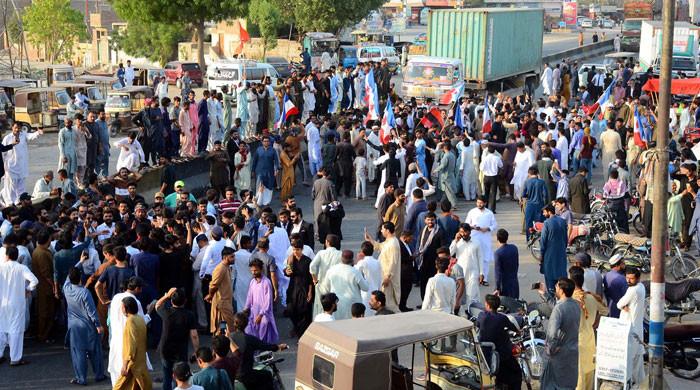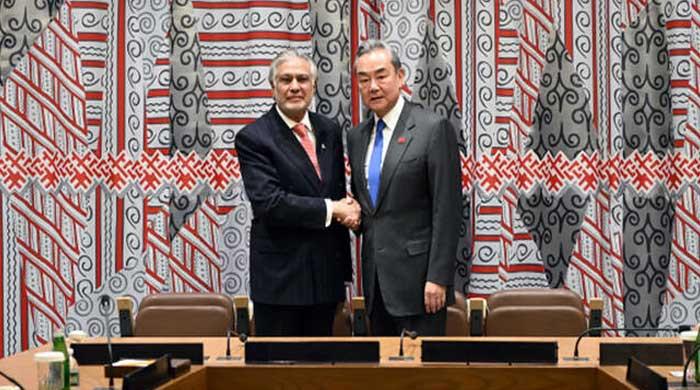In 2018, TLP spoiled more votes of the PTI than of PML-N
It now seems PTI, PML-N are both open to possibility of an electoral alliance with far right group TLP
November 08, 2021
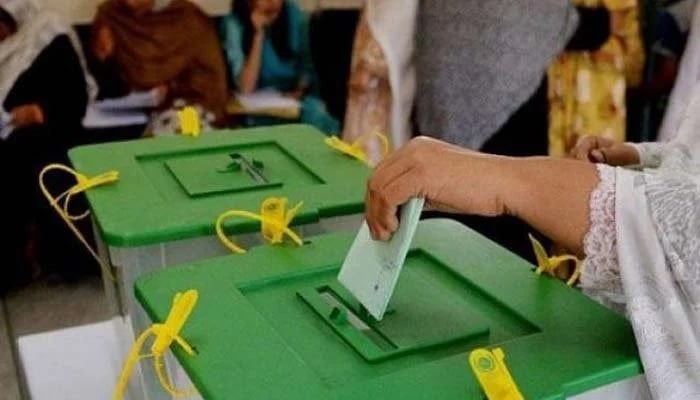
Last week, Ejaz Ahmad Chaudhry, a senator from the ruling PTI, spoke about the possibility of an electoral alliance with the till-recently proscribed Tehreek-e-Labbaik Pakistan (TLP). (The ban on TLP was revoked by the federal government Sunday night). However, other leaders from the PTI were quick to deny any such cooperation in the future.
It seems that besides PTI, the PML-N is also open to the possibility of an electoral alliance with the far right group.
Recently, in an interview with a local news channel, when asked about the political mainstreaming of the TLP, PML-N’s senior leader and former prime minister Shahid Khaqan Abbasi replied that if the Election Commission of Pakistan has allowed a party to contest, it has the right to do so.
On the possibility of a seat adjustment between the PML-N and TLP in the next polls, Abbasi said that any party can have a seat adjustment with another. “Political parties talk to one another” before the election and in politics doors are kept open, he said, adding that till now the PML-N has not discussed this possibility “and neither is there any such plan at the moment.”
But for argument's sake, let’s assume that the PTI and the TLP were to join hands in the next national polls. Would that prove beneficial for the PTI in the Centre and in Punjab, where it holds on to a threadbare majority?
A PTI-TLP alliance against PML-N in 2023?
Let’s examine this scenario first.
Looking back at the 2018 election results, there were at least 17 National Assembly constituencies in Punjab where the TLP had more votes than the difference between the winning and losing candidates. Had these TLP votes gone to the PTI, the PML-N would have lost these crucial seats in 2018.
For example, in NA-73, the winning margin between PML-N’s Khawaja Asif and PTI’s Usman Dar was 1,406, while the TLP got 9,958 votes in this constituency. Imagine if even half of the TLP votes had been polled in favour of Dar.
Let’s take another example.
In NA-106, PML-N Rana Sanaullah won from the PTI candidate by only 2,238 votes. While the TLP, again, here got over 9,000 votes.
Of these 17 seats which PTI lost, 14 were won by the PML-N, the biggest rival of the PTI, while two were clinched by independent candidates and one from the PPP was victorious.
Thus, if, as a result of a seat adjustment between the PTI and TLP, the latter has campaigned for PTI candidates, the PTI would have won all these 17 constituencies:
Here is a list of the 17 constituencies and its winners in 2018:
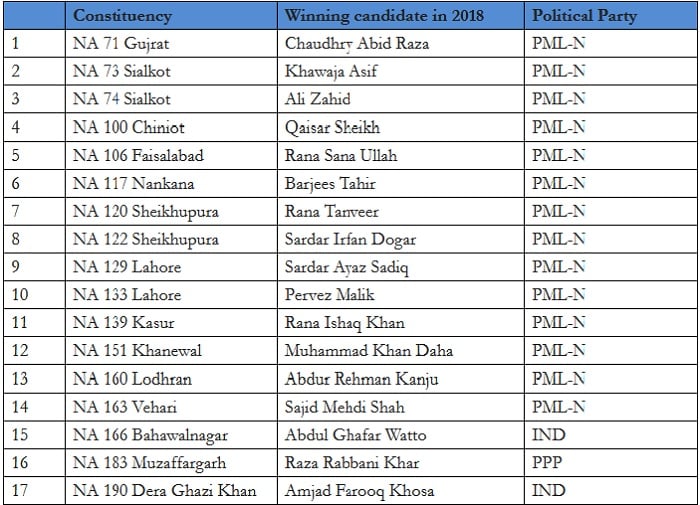
TLP: A spoiler for PTI or PML-N?
There was a common perception, post the 2018 general polls, that the far right TLP had cut into the vote bank of the PML-N. But an analysis of the 2018 election results paints a different picture.
In fact, the TLP seems to have played a spoiler for the PTI more than the PML-N in Punjab.
In 2018, while the PTI lost 17 seats of Parliament, where the TLP votes were more than the winning margin (table above), the PML-N lost only 14 National Assembly seats. Therefore, in these 14 constituencies, the margin of victory was less than the ballots cast for TLP.
After the general polls, in an interview to Geo News, late TLP chief Khadim Hussain Rizvi said: “Humaray se ziyada nuqsaan PTI koh howa hai. Iss liye ye ilzaam ghalat hai ke hum PML-N ke khilaf uthay thay. [PTI suffered more than us. Therefore, this accusation is incorrect that we stood up against the PML-N]".
Here is a list of the 14 National Assembly seats from Punjab, where the PML-N lost:
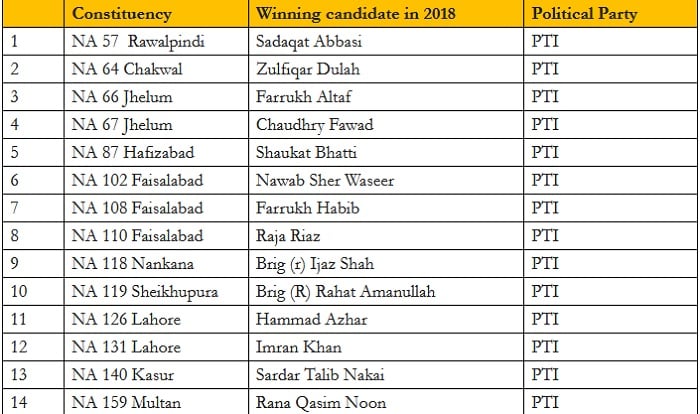
Talks of electoral alliance: Not a first
Back in February, before the Senate elections, Dr Shafiq Amini, a representative of the TLP, who was one of the signatories of an agreement with the government, after a protest by the TLP, claimed that a federal minister from Karachi had offered the TLP a ticket to contest the Senate polls.
In April, Amini again stated that the ruling PTI has offered its representation in the Upper House, as well as a future political alliance with the PTI, if it did not insist on the government fulfilling the TLP demands, which included downgrading ties with France.
However, Information Minister Fawad Chaudhry has said any alliance with TLP will mean automatic international isolation as it is considered an extremist party.
In a statement on Twitter as the government began implementing its deal with the TLP, Chaudhry had said that religious groups have the capacity to use mobs for violence but their capacity to create any ripple in politics "has always been limited".
"At one point Sunni Tehreek was more violent than TLP, but done and dusted. This party will be over sooner," he wrote.
It remains to seen, however, how things will eventually play out.




